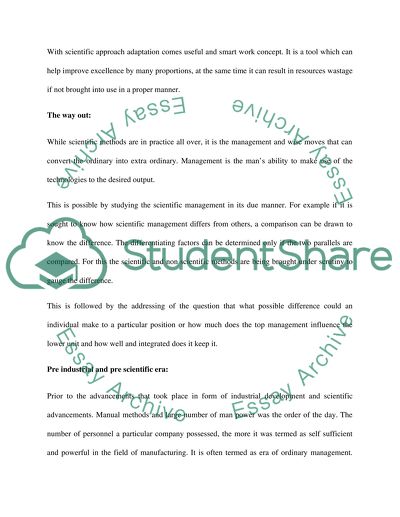Cite this document
(“Taylorism and Scientific Management Essay Example | Topics and Well Written Essays - 1500 words”, n.d.)
Taylorism and Scientific Management Essay Example | Topics and Well Written Essays - 1500 words. Retrieved from https://studentshare.org/sociology/1469888-taylorism-and-scientific-management
Taylorism and Scientific Management Essay Example | Topics and Well Written Essays - 1500 words. Retrieved from https://studentshare.org/sociology/1469888-taylorism-and-scientific-management
(Taylorism and Scientific Management Essay Example | Topics and Well Written Essays - 1500 Words)
Taylorism and Scientific Management Essay Example | Topics and Well Written Essays - 1500 Words. https://studentshare.org/sociology/1469888-taylorism-and-scientific-management.
Taylorism and Scientific Management Essay Example | Topics and Well Written Essays - 1500 Words. https://studentshare.org/sociology/1469888-taylorism-and-scientific-management.
“Taylorism and Scientific Management Essay Example | Topics and Well Written Essays - 1500 Words”, n.d. https://studentshare.org/sociology/1469888-taylorism-and-scientific-management.


